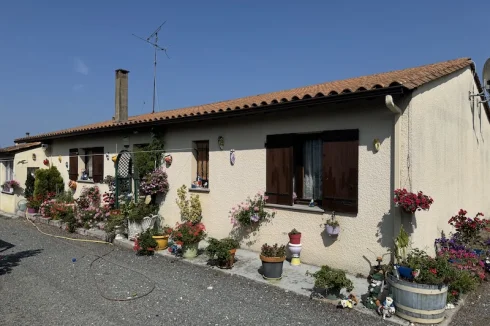Taxe d'Habitation 2020
Tuesday 10 November 2020
More households will be exempt from the taxe d’habitation this year as the gradual abolition of the tax continues.
Over the past two years, there have been progressive reductions of 30% and then 65% in the tax for households within eligible income thresholds.
This year, that exemption increases to 100% for households whose net taxable income (revenu fiscal de référence) in 2019 was no greater than €27,706 for a single person, which is increased by €8,209 for each of the first two half 'parts' of the household and €6,157 for subsequent half 'parts'.
The government estimates that as a result, around 80% of households will be completely exempt this year.
In order to reduce the impact of this cut-off point, those whose income is slightly higher than the threshold will obtain a partial reduction in the tax. These households are those whose revenu fiscal de référence was no greater than €28,732 for the first part, increased by €8,722 for the next two half parts and €6,157 for subsequent half parts. The formula for determination of the reduction is characteristically complex but from examples we have seen it is not ungenerous.
All other households will benefit from a progressive reduction in the tax of 30% in 2021 and 65% in 2022.
All households will be totally exempt in 2023, when the tax is finally abolished on principal homes.
The television licence fee (contribution à l'audiovisuel public) that is collected with the taxe d'habitation will continue to be payable, and the exemptions that apply will continue in force. The amount payable is currently €138.
The table below summaries the position for those who this year will be either totally or partially exempt. Thus, a couple would be totally exempt with a net taxable income no greater than €44,124 in 2019; they would be partially exempt with an income no greater than €46,176.
| Number of Parts | Totally Exempt | Partially Exempt |
| 1 | <€27,706 | <€28,732 |
| 1.5 | <€35,915 | <€37,454 |
| 2 | <€44,124 | <€46,176 |
| 2.5 | <€50,281 | <€52,233 |
| 3 | <€56,438 | €58,490 |
| +3 | +€6,157 half part | +€6,157 half part |
Second/Holiday Homes
Second home-owners will continue to remain liable for the tax, which will be called taxe d'habitation sur les résidences secondaires et autres locaux meublés non affectés à l'habitation principale (THRS)
In areas of housing stress a surcharge up to 60% (majoration de la taxe d'habitation sur les résidences secondaires) is payable on such properties, as we set out in our article Holiday Homes and the Taxe d'Habitation.
However, the surcharge that is also payable on those properties having a high rateable value will be abolished from 2021. This tax, called the prélèvement sur forte valeur locative is charged on homes (principal or second) having an annual rateable value higher than €4,573, at rates that vary from 0.2% to 1.7%.
Insofar are rental properties are concerned, where the property is rented to a tenant as their principal residence neither the owner nor the tenant will be liable for the tax.
Conversely, where the property, either furnished and unfurnished, is let out to a tenant not occupying the property as their main home it will still be subject to the tax, when the landlord is normally liable.
Vacant Properties
A small number of other properties will also remain subject to a related tax payable on a vacant property, called either taxe sur les logements vacants/taxe d'habitation sur les logements vacants depending on the location and the policy of the local council.
From 2023 onwards, a new reporting obligation is being imposed on owners, in order to enable local tax offices to establish the liability of the vacant property tax.
Owners of residential premises will be obliged inform their local tax office of the nature of the occupancy of the premises. If the premises are occupied by third parties, owners will be required to declare the identity of the occupant(s) of the premises.
The declaration should be submitted before 1st July of each year, under penalty of a fine of €150 per property, unless there has been no change in the information transmitted since the last declaration.
A similar rule already exist, and this is now a tightening of that rule.
Thank you for showing an interest in our News section.
Our News section is no longer being published although our catalogue of articles remains in place.
If you found our News useful, please have a look at France Insider, our subscription based News service with in-depth analysis, or our authoritative Guides to France.
If you require advice and assistance with the purchase of French property and moving to France, then take a look at the France Insider Property Clinic.





